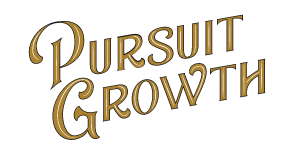What type of world news do you consume? Do you seek straight forward facts that give you the ability to form your own thoughts, opinions, and questions? Or do you seek opinionated news that supports a historical narrative you’ve adopted over time?
Reporting the news is big business, and news companies have learned that dramatic opinionated news attracts consumers – whether through angles on stories that support the emotional leanings of their target audience, or, with slants on stories that are likely to strike outrage in those who favor a different narrative.
Opinion news continues to rise in our culture, and it is often presented as “unbiased news.” However, the majority of opinionated news relies on click bait headlines that misrepresent the actual facts of the story and contain reports of half-truths to support a specific narrative. The American culture has increasingly developed a sweet tooth appetite for negative news drama, gossip, and hate. Marketing towards this movement is a successful recipe for many news organizations.
In 1983, 50 companies owned 90% of U.S. media. Since the Telecommunications Act of 1996, the act that reduced the Federal Communications Commission (FCC) regulations on cross ownership, 90% of U.S. media is owned by 6 companies. These companies are Viacom, News Corporation, Comcast, CBS, Time Warner and Disney. Have you researched the parent companies of the news you consume? What are their goals?
True unbiased news is presented factually, without any spin toward a political stance or to benefit the owners of the news outlet. If you are seeking to find news sources that are “less likely” to fall into the opiniated bias format, bookmark the following outlets.
- Associated Press: The Associated Press (AP) is an American non-profit news agency headquartered in New York City. Founded in 1846, it operates as a cooperative, unincorporated association. Its members are U.S. newspapers and broadcasters.
- BBC: The British Broadcasting Corporations’ mission is to act in the public interest, serving all audiences through the provision of impartial, high-quality and distinctive output and services which inform, educate and entertain.
- Rueters: Reuters provides business, financial, national and international news to professionals via desktop terminals, the world’s media organizations, industry events and directly to consumers.
- C-Span: C-Span showcases government hearings that showcase what politicians are saying without the interference of a journalist’s pen.
- The Financial Times: The Financial Times maintains an excellent reputation for delivering impartial news relating to economics, politics, business, and more.
- Pew Research: If you want the pure facts and figures behind the articles, you need to head to Pew Research, the “nonpartisan think tank.” Pew Research consistently publishes unbiased research into news, politics, technology, media, and much more. If you start reading their reports rather than the news, you’ll understand more about the bias found throughout the media, allowing you to make informed decisions about where you read your news.
- Kiplinger Letter – *Paid Subscription: This weekly letter is a concise forecast on factual business, economic, political, and consumer trends. The best $99 you’ll spend this year.
LiveTPG





